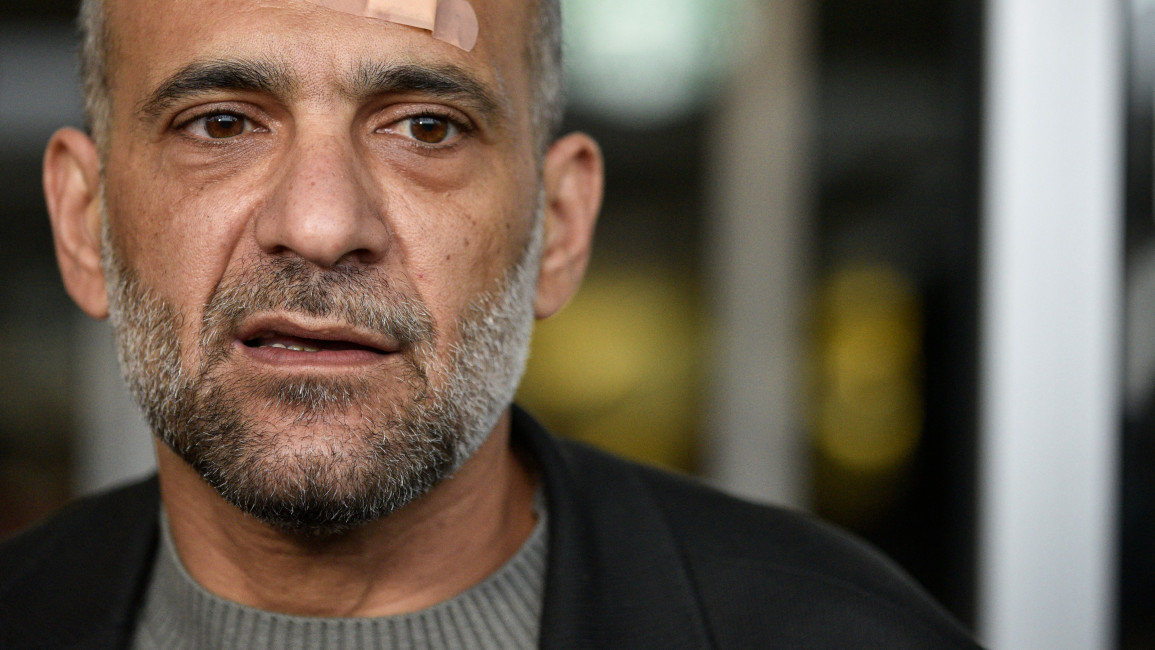'Egypt is a big cell' says Egyptian-Palestinian activist freed from jail
Egyptian-Palestinian activist Ramy Shaath has denounced Egypt as "a big cell" weeks after his release from jail and departure for France, saying he was determined to keep fighting for the Palestinian cause despite threats against his family.
"Egypt today is a big cell and we were in a much smaller one," Shaath told AFP in Paris after almost two-and-a-half years in prison.
"It's becoming a terror state in every sense of the word," he added.
The 50-year-old was a prominent figure of the 2011 uprising in Egypt and the coordinator of the country's chapter of the Boycott, Divestment and Sanctions (BDS) movement against Israel.
He was arrested in July 2019 on charges of aiding a "terrorist organisation".
But Shaath said that of the hundreds of people with whom he shared cramped, crowded cells during his incarceration, "all of them had the same exact accusation with absolutely no proof, no substance, no incidence, nothing".
"Just a few words they tell you and that is enough to keep you in detention."
Shaath said that at first his fellow prisoners were mostly civil society activists or Islamist supporters of groups including the Muslim Brotherhood, which held power from 2012-13 before being removed by the military.
But during his incarceration, increasing numbers arrived who had been detained for still more arbitrary reasons, down to a social media "like" for the wrong person or page.
He said up to 32 people shared cells of just 23 square metres (250 square feet), where a single hole in the ground with a shower head above it served as bathroom facilities.
Prisoners did not receive due process and were placed in solitary confinement if they complained, he added, saying that one of his friends died in one of the one-square-metre punishment cells.
After his release, "there were threats and warnings not to open my mouth, and especially not to open my mouth about jail conditions and legal conditions," Shaath said.
Although he said threats were also made against his remaining family in Egypt, he added that "I cannot personally go to sleep every night thinking of hundreds of friends and thousands of innocent Egyptians still rotting in hell and not speak about them".
But Shaath still has hope for "a better Egypt, a more human Egypt, where I can go back and live, where my daughter can live safely with her family".
He said that BDS was a "non-violent way of fighting both occupation and dictatorship" and that "growing regional relations between Egypt and Israel have made the Egyptian government not want to hear internally anything about Palestine".
Shaath believes that his opposition to a rapprochement between Israel and Arab nations brokered by the Trump administration in Washington was the final trigger for his arrest.
"That's what I heard internally, that my position against Donald Trump's and (Jared) Kushner's 'deal of the century' and my position towards the Egyptian role in it is what finally decided" the arrest, he said.
Following the opening up to Israel, "those same dictators that suppress their people are suppressing people's aspiration for a freer Palestine", he added.
Nevertheless, Shaath does not think that the Arab Spring uprisings last decade failed.
"The Arab Spring began in 2011 but the end of it is not anywhere close. A change is a must, it's gonna happen," he said.
"I can see the regime in Egypt being scared, and being suppressive, and being bloody, because it realises that what happened in 2011 has changed Egyptians in a way that they can't go back."



